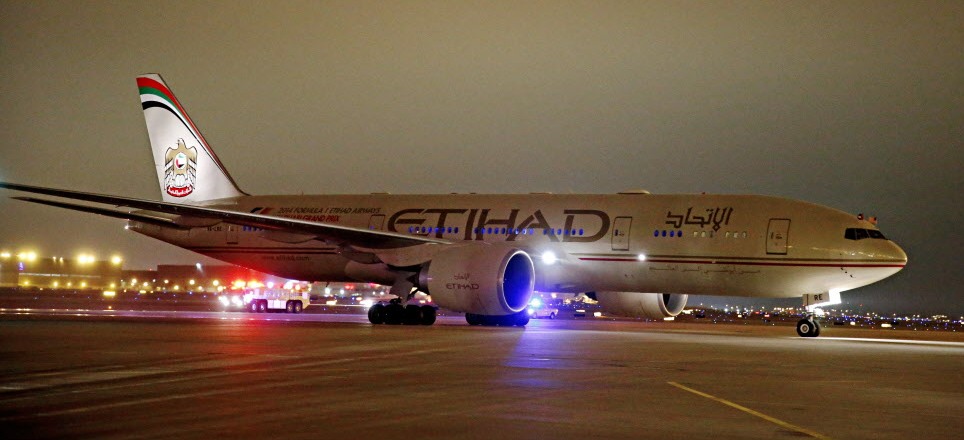Compare & book cheap Etihad Airways flights at Travelstart: ✓ Easy online booking ✓ The best Etihad Airways flight specials – Book today!

Fly Now and Pay Later
Extra 10% off with Visa
Pay for your flights with Visa and
save an extra 10% on etihad.comSpecial Deals from Etihad
Exclusive Fares and Deals available
Online. Book Now and Pay LessVisit Amazing Abu Dhabi
Experience the Incredible
Stopover in UAE’s Capital
Based in Abu Dhabi, Etihad Airways (EY) is the second largest carrier in the United Arab Emirates. It operates non-stop flights to about 40 destinations in the Middle East, Asia, Oceania, Europe, Africa, North America and South America. Etihad's aircraft cabins are configured in a variety of ways, and can include The Residence (a three-room suite), First Class Apartment, First Class Suite, Business Studio and Economy Smart Seat. The airline has a First Class Lounge, Premium Lounge and an Arrivals Lounge for use by First Class and Business Class passengers at its hub at Abu Dhabi International Airport (AUH). It operates seven lounges at other airports.
EtihadAirways – the Abu Dhabi-based airline which, alongside its Gulf rivals Emirates and Qatar Airways, has helped to transform the international aviation industry – says it is adopting a more cautious strategic approach, after coming through a period of heavy losses and strategic setbacks.
Chief executive Tony Douglas, who took over the airline in January, has vowed to be “very disciplined, very measured” in the future. Speaking at the Global Aerospace Summit in Abu Dhabi on April 30, he said the aim now was to seek “growth in a sustainable way” while also insisting that he did not see the airline becoming merely a "boutique" operator.
His comments follows a series of high-profile problems with the airline’s ‘equity alliance’ strategy, which involved taking stakes in struggling operators in other parts of the world. The theory was it would enable Etihad to develop a larger international network more quickly, with the partner airlines feeding passengers through to its own planes. It did not go smoothly however, and was effectively brought to an end after the failure of several of the partner airlines including Italy’s Alitalia and Air Berlin in 2017.
The number of planes in operation has been pared back from 121 at the end of 2015 to 115 by December 2017. And the number of destinations served has fallen from 117 in mid-2016 to around 100 today, with the latest cities due to be dropped from its schedule including the Scottish capital Edinburgh and Perth in Western Australia.
Passenger growth has also stalled. The airline consistently posted double-digit growth in passenger numbers from 2007 to 2015, but in the past few years that trend has come to an end. Etihad carried 18.5 million passengers in 2016, 5% more than the year before. Last year the total reached 18.6 million, a growth rate of just 0.5%.
The trends at Etihad’s home airport of Abu Dhabi International are also troubling. According to the airport authorities, passenger numbers for the first quarter of this year were down 11% compared to the same period last year, falling from 6.2 million to 5.5 million. Cargo volumes slumped 25% to 142,493 tons.
This statistics look particularly bad when set against the performance of Abu Dhabi’s main rival. Passenger numbers at Dubai International airport continue to grow, reaching 7.85 million customers in March, up 4.5% year-on-year.
The Dubai-based carrier Emirates is also still expanding. In 2016-17, it added eight planes to take its fleet to 259, while passenger numbers rose 8% and cargo volumes were up 3%. However, in a sign of the increasingly competitive market, revenues were unchanged for the year at AED85bn ($23.4bn) and its operating profit was down 71% to AED2.4bn.











No comments:
Post a Comment